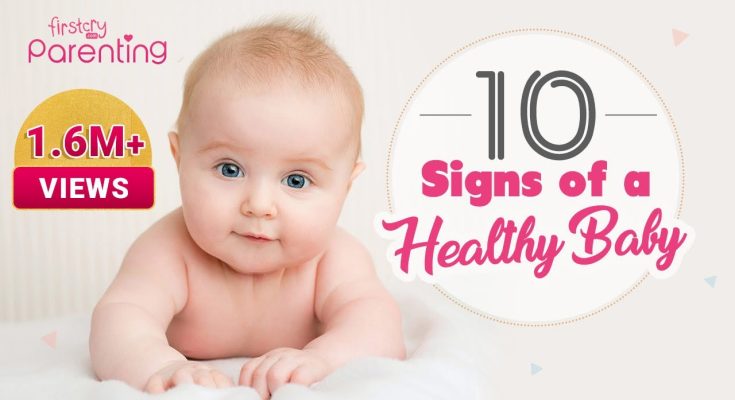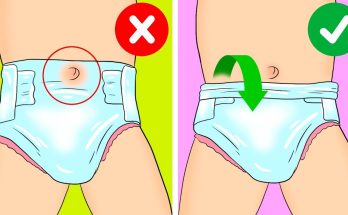Signs of a Healthy Baby | How to Know If Your Baby Is Healthy
As a parent, it’s natural to wonder whether your baby is growing and developing as they should. While every baby is unique and reaches milestones at their own pace, there are certain signs that indicate your baby is healthy, happy, and thriving. Recognizing these indicators can offer peace of mind and help you support your baby’s well-being.
Here are 10 important signs your baby is healthy, from physical growth to social responses.
1. Consistent Weight Gain and Growth
A healthy baby grows steadily. Doctors use growth charts to track your baby’s height, weight, and head circumference at regular check-ups.
What to look for:
-
Your baby is steadily gaining weight after the initial post-birth drop.
-
Clothes are gradually getting tighter or smaller.
-
The doctor is happy with the baby’s progress along their growth curve.
Note: Growth spurts and slowdowns are normal, but consistent tracking is key.
2. Alertness and Active Movements
A healthy baby is curious and increasingly active as they grow. They will move their arms and legs, follow objects with their eyes, and respond to sounds.
What to look for:
-
Your baby makes eye contact and turns toward voices.
-
They wiggle, kick, or reach for toys and people.
-
They respond to familiar sounds or voices.
3. Regular Wet and Dirty Diapers
Diaper output is a great indicator of your baby’s hydration and digestion.
What to look for:
-
At least 6 wet diapers a day after the first week.
-
Regular bowel movements (though frequency may vary by age and feeding type).
-
Stool that’s soft and free of mucus or blood.
4. Healthy Skin Tone
Your baby’s skin says a lot about their health. While newborn skin can have temporary marks or spots, overall tone and texture matter.
What to look for:
-
Skin is soft, smooth, and pinkish (not pale, gray, or yellow).
-
No persistent rashes, dryness, or bruising.
-
Lips and tongue are moist and pink.
5. Strong Feeding Habits
Whether breastfed or bottle-fed, a healthy baby eats regularly and eagerly.
What to look for:
-
They show hunger cues (rooting, sucking on fists) and feed well.
-
Feedings leave them satisfied and sleepy.
-
You can hear or see them swallowing during feeds.
6. Reaches Age-Appropriate Milestones
Developmental milestones help assess how your baby is growing in terms of movement, social skills, and communication.
What to look for:
-
Smiling by 6-8 weeks.
-
Holding head up by 3-4 months.
-
Rolling over, sitting, crawling, or babbling depending on age.
Don’t panic if your baby is a little early or late—just keep track and consult your pediatrician with concerns.
7. Good Sleep Patterns
Babies need a lot of sleep, and patterns will gradually become more predictable with age.
What to look for:
-
Newborns sleep 14–17 hours a day in short bursts.
-
By 3–6 months, they start sleeping longer at night.
-
They wake up happy and alert after naps.
8. Emotional Responsiveness
A healthy baby bonds with caregivers and begins to show signs of emotion and personality.
What to look for:
-
They smile when you smile or talk to them.
-
They cry for needs and settle when comforted.
-
They enjoy eye contact, cuddles, and play.
9. Normal Body Temperature
A consistent body temperature around 97.5°F to 99.5°F (36.5°C to 37.5°C) is a good sign.
What to look for:
-
Baby feels warm but not hot or cold.
-
No persistent fever, sweating, or chills.
-
Skin and limbs are evenly warm (cold extremities can sometimes signal poor circulation).
10. Shows Curiosity and Interest in the World
As your baby grows, they’ll begin exploring their environment more actively.
What to look for:
-
They grab toys, study faces, and turn toward sounds.
-
They try to mimic expressions or vocal sounds.
-
They appear interested and engaged during playtime.
Final Thoughts
Every baby is different, and development happens in unique ways and at different speeds. However, these 10 signs provide a general checklist to help you assess your baby’s health and happiness. If your baby is feeding well, growing steadily, sleeping enough, and responding to you and their surroundings, you’re on the right track.
It’s also important to maintain regular pediatric check-ups. Your healthcare provider will track growth, monitor development, and answer any questions or concerns you have along the way.
The best thing you can do? Love your baby, spend time together, and trust your instincts—you know your baby better than anyone.



